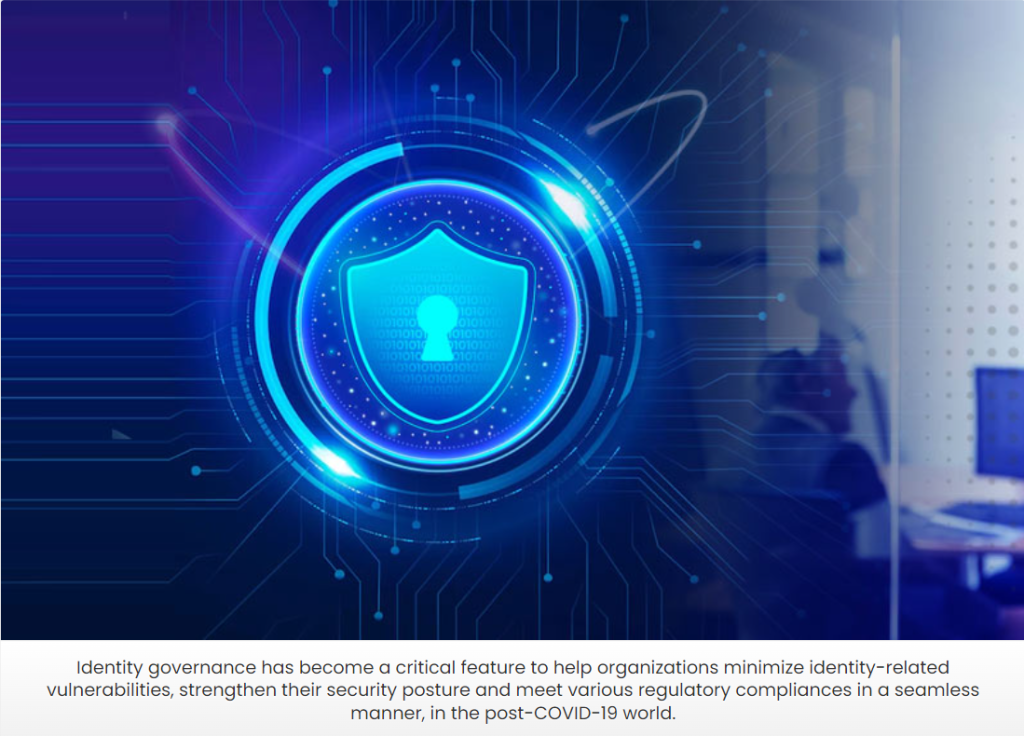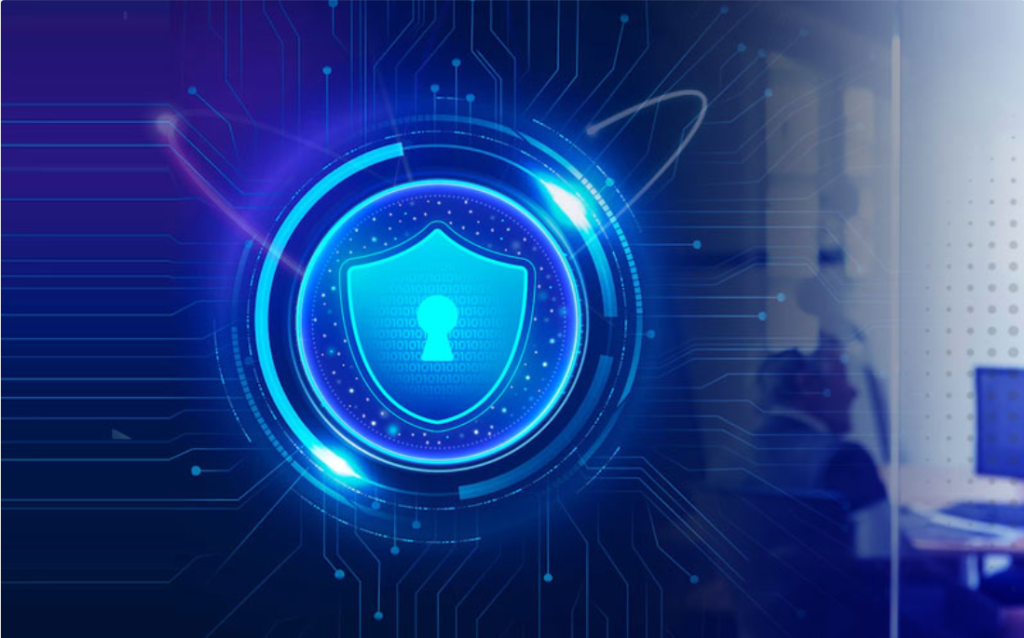
The modern pandemic-era disrupted the business ecosystem drastically, with enterprises scouting for immediate digital transformation to accommodate the new normal of remote working. This provided an ‘appropriate’ moment for hackers and people with malicious intent to target vulnerable systems and networks, causing large-scale data breaches, ransomware and malware attacks. Enterprises, especially with minimal or inadequate identity governance systems, became easy targets for cyber criminals.
Identity governance has, therefore, become a critical feature to help organizations minimize identity-related vulnerabilities and challenges for maintaining digital security posture in the post-COVID-19 world. Our IAM experts believe a well-crafted identity governance strategy should cater to the following guidelines.
The disruptive and dynamic business environment is creating challenges for organizations’ IT teams to provide appropriate access to users quickly, that too in a compliant manner. Users need to be provided with access almost instantly as per their assigned role to avoid lag time in executing their work.
Streamline access delivery and improve user productivity.
Implementing right identity governance solution can help in:
- Streamlining the delivery of user access,
- Minimizing the time to implement access changes considerably,
- Enforcing compliance policies and governance rules simultaneously
- Augmenting the productivity of the team by automating access governance process
Identity governance solution is at the core of providing efficient user on-boarding through accurate creation of roles and streamlining of provisioning process. This also enables enterprises to minimize the time to implement access changes considerably, thereby, augmenting the productivity of the team.
Improve operational efficiency.
Identity governance provides businesses with a consistent framework to operationally manage and govern their digital identities in a secure IT ecosystem.
Along with ensuring digital transformation, identity governance has been able to augment operational efficiencies for IT team by:
- Leveraging identity solutions to create automated user lifecycle provisioning and password management
- Implementing role-based access controls and certification to streamline user access without manual intervention
- Providing self-service features to drive solution adoption by users without the intervention of the IT team
- Automating policy implementations, thereby, helping employees to adhere to compliances without any added effort
Thus, identity governance, along with ensuring security, is often viewed as the prime driver of operational efficiency within an organization.
Meet compliance demands and improve audit performance.
Implementation of stringent policies and regulations, such as HIPAA, GDPR, Sarbanes-Oxley or the recent California Consumer Privacy Act (CCPA), mandates businesses to specifically prioritize data privacy and security.
Identity governance not only helps enterprises to meet compliance requirements, but also improves their audit performance by:
- Creating stringent processes to prevent unauthorized access to sensitive data such as patient records or financial information
- Undertaking periodic review and certification, with report generation features, to make organizations audit-ready at any time
- Providing dashboard and visual representation of data to enable businesses to view and monitor accesses in an error-free manner
Thus, identity governance has become a critical feature for enterprises to maintain and monitor user access across systems and networks, along with remaining audit-ready.
Reduce IT and helpdesk dependence and save operating costs.
Many enterprises are still employing manual processes for creating new users, changing accesses or deleting users. This results in fragmented and inefficient process to execute requests such as resetting passwords, providing accesses or changing accesses, thus, burdening the helpdesk and IT staff with added responsibilities. With the automation of such processes, it would enable organizations to reduce the number of such user requests being directed to the help desk, thereby, lowering their operating cost.
Every organization faces some or the other security risk, whether from internal or external factor. With the regulators imposing stringent security and privacy laws and penalties globally, the onus to provide a secure IT ecosystem to the users is on the enterprises. Implementing a robust identity governance strategy may help organizations to strengthen their security posture, while remediating vulnerabilities on a real-time basis, along with meeting with various regulatory compliances in a seamless manner.
How Avancer can help?
At Avancer, we undertake a four-pronged process to help identify the challenges within an organization and provide strategic solutions and implementation roadmap as per the analysis.
Step 1# Assessment.
To safeguard critical data and create long-term security posture, it is essential to undertake a result-oriented, strategy-led identity governance assessment solution. Our experts assess the existing identity solutions implemented by the organization to identify challenges and gap areas in IT security. This includes reviewing of the current setup, accessing available documents and interviewing key stakeholders.
Step #2 Roadmapping.
It is imperative to outline a path and create use cases that will help in achieving business and identity governance goals, such as minimizing security risks, saving resources, time and cost, and adhering to compliances. This process includes reviewing pain-points / roadblocks, defining core functionalities as per wish-list and focusing on platform efficiency and ease-of-use.
Step #3 Deployment.
While the above step ensures creating a clear road-ahead and easier deployment of the solutions offered, at the actual deployment stage, our experts often customize and update the suggested solutions as per the changing digital transformation trends. This process includes undertaking gap analysis, aligning business objectives and mitigating regulatory and other constraints.
Step #4 Support.
In order to provide a comprehensive one-stop solution, our experts also focuses on managing, updating and optimizing solutions based on performance metrics for constant improvements. This includes undertaking strategic and tactical analysis, providing resolution as per allocated budget and providing project plan.

